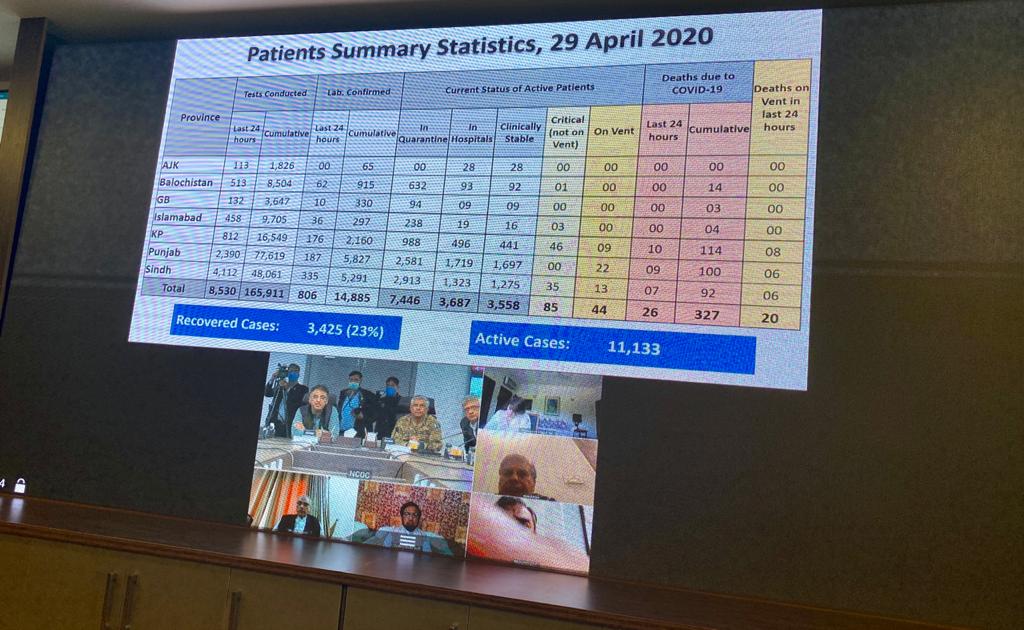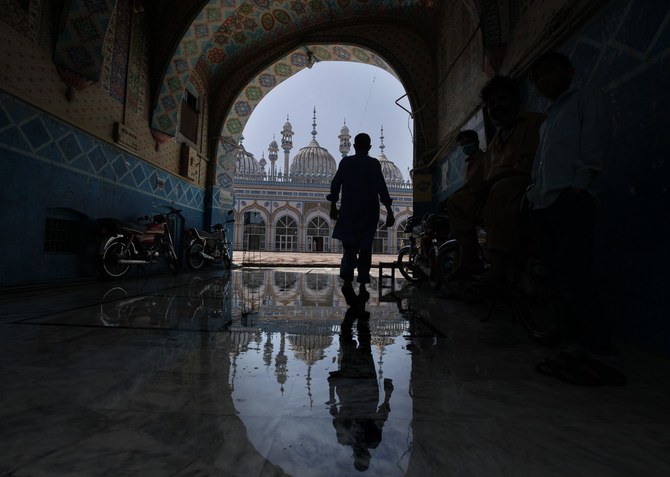ISLAMABAD: Pakistan is likely to reach the peak of coronavirus infections around the end of June, Planning Minister Asad Umer announced on Wednesday.
"On the basis of available data from last two months and also after analyzing world data, we are expecting the peak of COVID-19 in Pakistan somewhere between the end of June and early July," the minister who heads the National Command and Operation Center (NCOC) told reporters in Islamabad.
NCOC is responsible for coordinating Pakistan's coronavirus response.
As the country has recently observed a sharp rise in known virus cases, the minister attributed it to Pakistan's increasing COVID-19 testing capacity, which he said had improved from around 2,000 to above 8,000 tests in the past two weeks.
"Right now, the number (of known cases) is above 15,000, but still this data is not conclusive as there may be many other people out there who have not been tested so far," he said, adding that with 26 deaths in the past 24 hours the country has witnessed the highest daily mortality rate, bringing the COVID-19 toll to 335.

Planning Minister Asad Umer and NCOC representatives participate in a media briefing on COVID-19 in Islamabad on April 29, 2020. (AN photo)
In its testing efforts, Pakistan relies on polymerase chain reaction (PCR) tests, which according to Umer are 70 percent accurate. Currently, 52 laboratories across the country test samples for the virus, Dr. Mirza, the prime minister's special assistant on public health, said during the same NCOC briefing.
Despite the rising numbers of cases, the Pakistani government is planning to partly lift its transportation lockdown to facilitate movement ahead of the Eid holidays next month.
"We are making very stringent SOPs for the opening of public transport as we have to open intercity and interprovincial bus services by the end of Ramadan to facilitate public to travel to their homes before Eid," Umer said.
NCOC consists of provincial and federal institutions as well as the military. Its standing committee is chaired by Dr. Mirza and it has all provincial health ministers as members. "Federal and provincial information ministries are also part of NCOC to help us spread relevant information," Umer said.
One of the main current problems in Pakistan's efforts to contain the outbreak is the safety of its medical workers. Dr. Mirza said a special scheme has been designed for them.
"We are focusing on the safety of health workers as 480 of them have contracted COVID-19, which is a cause of great concern for us. We have designed a protection and support program for frontline health workers and the federal cabinet has approved a special package for them," he said.
















